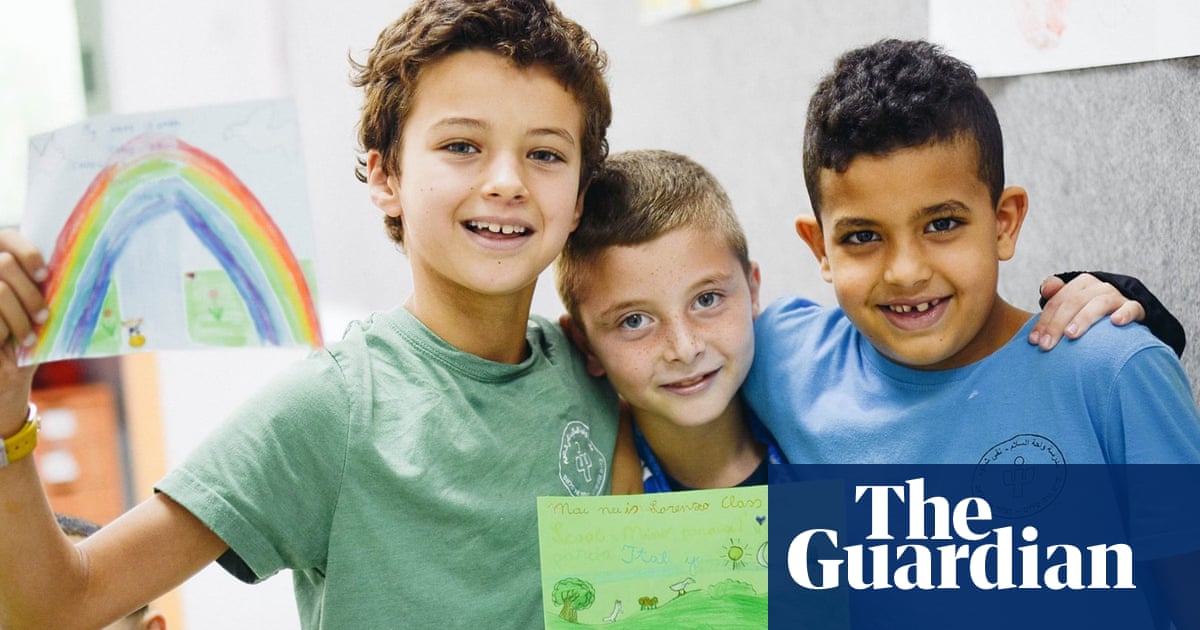An Israeli village where Jews and Palestinians live together to promote peace is in danger of losing vital overseas funding following Israeli government proposals to impose an 80% tax on foreign donations, residents have warned.
Leading figures from the unique community – Wahat Salam/Neve Shalom, which translates as “Oasis of Peace” – flew to the UK this week in a visit hosted by the Co-operative Group, which is calling for the UK government to support peace-building cooperatives worldwide with foreign and development policy.
Samah Salaime, an Israeli Palestinian, and Nir Sharon, an Israeli Jew, co-direct the village’s educational institutions, which include the School for Peace for activists and a primary school where 250 Jewish and Palestinian children learn each other’s histories, in Arabic and Hebrew.
The co-directors addressed a parliamentary round table, attended by Labour and Co-operative MPs and non-governmental organisations (NGOs) on Tuesday, in a visit coinciding with the 77th anniversary of theNakba,when more than 700,000 Palestinians were dispossessed. On Saturday, the pair addressed the Co-operative Group’s annual general meeting in Manchester.
Before the meeting, Salaime told the Guardian of the threat posed by a billbeing debatedin Israel’s Knesset. If it became law, it would decimate the finances of NGOs in Israel that receive funding from foreign states.
“All support from foreign countries for the peacemakers of the left, the liberal and the democratic; humanitarian aid or legal aid for the Palestinians, will be taxed 80% from foreign countries,” she said.
“Thebiggest supportersfor Wahat Salam come from the UK, from the Co-op, our friends in Switzerland, in Sweden, in the US. We don’t have any local Israeli support for our project … financially and ideologically, they are against us.”
Sharon added: “We faced financial problems and challenges in the past, but if this law passes, we will be in severe problems, most of our education projects will just shut down.”
Conceived by Bruno Hussar, a Jewish Catholic priest,the villagestarted with a handful of residents in 1978, in “no man’s land” between Jerusalem and Tel Aviv.
It now has 300 residents, half Israeli Palestinians and half Israeli Jews, including academics and tech professionals, with a waiting list of about 200 families. There is no synagogue or mosque: instead, residents pray or meditate in a dome called the Court of Silence.
Surrounded by olive trees, communal life in the village revolves around committee meetings where the co-operative’s decisions are voted on, shared meals, the swimming pool and the Garden of Rescuers, which commemorates heroes of global catastrophes. There is a guesthouse in the village, and children from surrounding areas are bussed in to attend the school.
Salaime said: “We were attacked by settlers three times. We had two arson attacks in 2021. They set fire to our peace school, and we rebuilt it and the peace library. They attacked the primary school, destroying 16 vehicles … we have all kinds of unfortunate incidents, and we survive.”
Salaime, a social worker and feminist of the “third generation of the Nakba”, moved to the village from East Jerusalem in 2000, five days before the second intifada, looking for a “decent school”. Her three sons have grown up with Jewish friends, facing the “complexity” of a “soulmate” agreeing to serve in the Israel Defense Forces. When her home came within a range of rockets from Gaza, Salaime reassured her mother that she could use her Jewish neighbour’s shelter.
“We break the rules, we break the stereotype, the brainwashing of the Israeli mainstream that peace isn’t possible,” Salaime said. “We have to win this and offer a different agenda.”
Sharon was 14 when his parents moved to the village 23 years ago and said it gives “isolated lefties, Jewish peacemakers and activists” a place to “coexist”.
“We are not some kind of utopia, where everything is perfect and there is no debate,” he said. “When there is October 7 and the war, we have to talk about it.”
Leading theCo-op’s peace-building campaign,Paul Gerrard, Co-op Group’s policy director, said the village was a “breathtaking example of where people come together around a goal, in that cooperative way, they can survive and they can thrive”.
